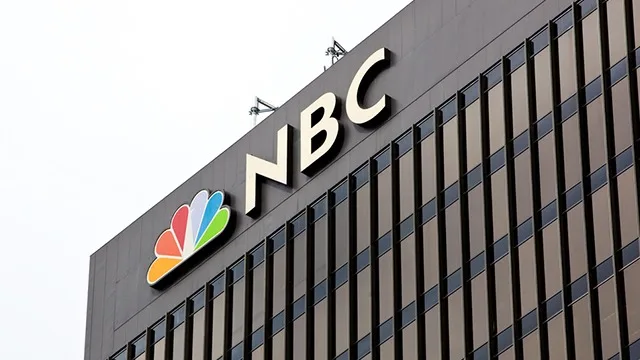In a bold move that has rattled the entertainment industry, NBC has announced the cancellation of its long-running sketch comedy show, “Saturday Night Live” (SNL), citing a decline in humor and viewer engagement as the primary reasons. The network’s decision to pull the plug on the show, which has been on the air for decades, comes amidst mounting criticism of its recent shift towards ‘woke’ humor, with a senior NBC executive bluntly stating, “It’s simply not funny anymore.”
Since its inception in 1975, SNL has been a cultural cornerstone, praised for its sharp wit, political satire, and for launching the careers of countless comedians. From its early years under the guidance of Lorne Michaels to its later periods of renaissance, SNL has been a significant part of American culture. It has introduced audiences to iconic characters, catchphrases, and parodies that have stood the test of time.
However, in recent years, SNL has faced backlash for what some perceive as a move towards overly politically correct and ‘woke’ comedy. Critics argue that this new direction has resulted in a decline in the show’s quality, with sketches often prioritizing moral messages over humor. “Comedy is about pushing boundaries and making people laugh uncomfortably at society’s truths. When you start censoring jokes for political correctness, you lose the essence of comedy,” explains comedy historian Dr. Laughs A. Lot.
Viewer ratings have reflected this discontent, with a noticeable drop as audiences seek entertainment that doesn’t feel constrained. Social media has been flooded with viewers’ frustrations, with many bemoaning the loss of the edgy, irreverent humor that once defined SNL.
The decision to cancel SNL was not taken lightly. NBC executives spent months deliberating, reviewing viewer feedback, ratings, and the cultural impact of continuing the show in its current form. “It became evident that what SNL had become no longer resonated with audiences. It’s a sad moment for us, but we believe it’s the right decision,” shared an NBC spokesperson.
In a statement, NBC thanked Lorne Michaels, the cast, and crew for their dedication and creativity over the years, acknowledging the difficulty of the decision. “This is not a discredit to the incredible work that has been done. It’s about recognizing that all shows have a lifespan, and SNL’s groundbreaking journey has come to an end.”
The announcement has sparked mixed reactions among fans and critics. Some see it as the end of an era, mourning the loss of a television institution that had become a Saturday night staple. Others, however, view it as a necessary step towards revitalizing the comedy landscape, allowing for new voices and formats to emerge.
Former cast members have expressed a range of emotions, from sadness to understanding. “SNL was a home for so many of us, a place where we could be fearless in our comedy. It’s heartbreaking to see it end, but I also understand the reasons behind the decision,” remarked a beloved SNL alum.
The cancellation of SNL marks a significant moment in television history, signaling a potential shift in audience expectations of comedy. In its absence, there is an opportunity for new shows to rise, offering different perspectives and humor that resonate with today’s viewers.
NBC has hinted at its commitment to developing fresh comedic talent and formats that reflect current societal attitudes. “Our dedication to comedy remains unwavering. We are excited about the future and the new projects we have in the works,” the network stated.
As the news settles, the legacy of SNL remains indelible. For nearly half a century, it has been a mirror to society, reflecting its absurdities, challenges, and triumphs through comedy. Its impact on the entertainment industry and American culture cannot be overstated, providing a springboard for countless careers and shaping comedic tastes across generations.
The end of SNL is not just the conclusion of a television show but the closing of a significant chapter in the story of American comedy. As NBC looks to the future, the challenge will be to capture the magic and relevance that made SNL a household name while adapting to the evolving landscape of humor and entertainment. The curtain may be closing on SNL, but its influence and the laughter it brought into homes will continue to resonate, reminding us of the power of comedy to unite, challenge, and entertain.


